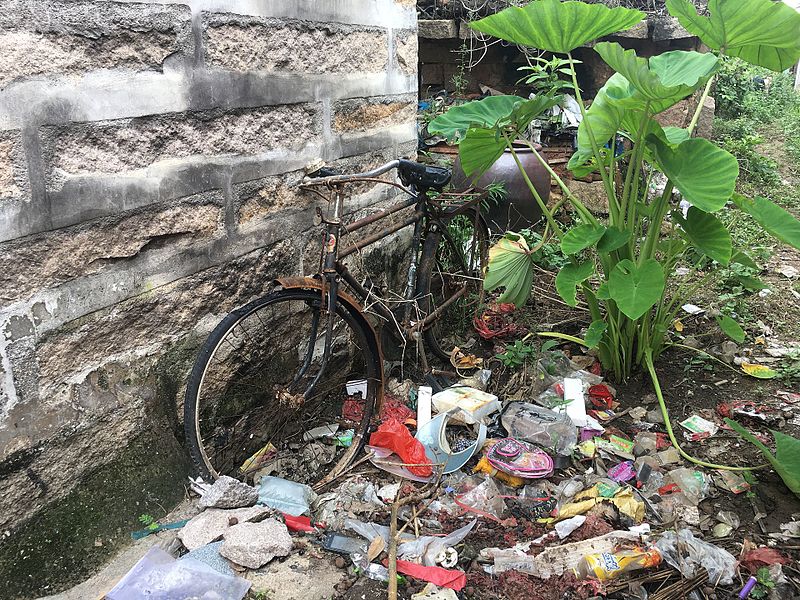From January, China’s government is enacting a plastic waste import ban, in an attempt to cut down on millions of tons of plastic and other recyclables it receives every year. This change could have a drastic effect on how the world recycles and disposes of waste.
The world’s biggest user of scrap will stop accepting shiploads of other countries’ plastic trash. That’s bad news for the recycling industry, as China has been a major consumer of salvaged materials it processes into resin that ends up in pipe, carpets, bottles and other artefacts of modern life, as Bloomberg notes.
According to IndustryWeek, China accepted 51 percent of global plastic scrap imports in 2016. The biggest chunk of that trash came from the US, where the majority of “recycled” plastics is actually shipped abroad to then be recycled; as such, trash has actually become one of the US’s biggest exports. Europe, Hong Kong, Japan and Southeast Asia ship their recyclables to China as well. All of this waste has historically been used to fuel China’s manufacturing industry.
Due to China’s “Green Fence” campaign banning “foreign garbage” (link in Chinese), the Chinese banned certain plastics that haven’t been cleaned or thoroughly sorted four years ago. That type of recyclable material, which costs more to recycle, often ends up in China’s landfills, which have caused unrest in the country’s south, as Quartz.com noted in this 2013 piece.
China will stop imports of recyclable waste from early next year, including mixed paper, plastic bottles and 24 types of solid waste, saying much of the waste it imports from other countries is too hazardous to recycle.
Where will all that waste go when China stops importing it? Action will need to come soon: in Hong Kong, mountains of paper waste that would normally go to China have been piling up since a July ban on 24 types of “foreign garbage”. That ban is already driving up the prices of paper products. A paper mill manager in southern China told Reuters in September that the price of finished paper had doubled as a result, from 3,000 yuan ($453 Dollars) per ton to 6,000 yuan ($906 Dollars) per ton.
But while government officials worldwide consider how to move forward after the new ban, the main focus has to be on the environment. This action could undo the decades-long effort to build a plastics recycling industry, and lead to even more plastics being produced; IndustryWeek website reports that China has already begun investing in brand new plastic to replace what they’re no longer recycling, to the delight of US chemical companies.
That’s especially bad news as plastic waste continues to harm the environment, particularly marine animals. The U.N. has called the plastics problem a “planetary crisis”, and action needs to be taken soon. Unless another country steps in to fill the recycling gap China has created, this issue will only get worse.
Source: www.wikitribune.com


Comments are closed.